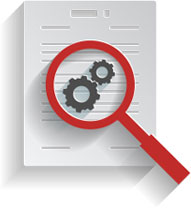DOCUMENTATION AND RECORDKEEPING IMPROVES THE OVERALL SECURITY OF EMPLOYERS AND PROTECTS EMPLOYEES
Documentation is one of the most essential functions of an effective human resources program. The following represents some of the main reasons that companies should implement documentation:
- Remain Compliant – Becoming and remaining compliant is typically a challenging task for most employers. But compliance is there for a reason, which is to provide employers and employees with protection at the workplace. OSHA, the Department of Labor (DOL), the Equal Employment Opportunity Commission (EEOC), and many more agencies are responsible for overseeing this element of recordkeeping compliance. Companies that fail to comply are subject to fines, violations, and other penalties.
- Protection from Litigation – Both employees and employers have an obligation to uphold the rules and laws that govern the workplace. When there is a breach of the rules, employees may get fired or penalized. Sometimes, a backlash occurs through the form of litigation that can cost employers a lot of money. Documentation is the first line of defense for unnecessary litigation, and can save companies money and public relations headaches.
- The Affordable Care Act – The ACA is constantly introducing new laws and rules that affect employers. Employers can use documentation strategies to quickly transition into ACA compliance by using historical data to help employers implement strategies that meet the changing requirements of health care reform.
- Assisting with the Corporate Culture – Employees feel better when there is a referee between the employee and employer. An effective HR team records, documents, and has organized information, so all members of an organization feel comfortable at their workplace.
WHAT EMPLOYEE RECORDS SHOULD EMPLOYERS KEEP?
The Department of Labor lists basic documents employers need to maintain. The full list for nonexempt and exempt employees is as follows:
RECORD REQUIREMENTS FOR NONEXEMPT EMPLOYEES
- Employee’s full name and social security number
- Address, including zip code
- Birth date, if younger than 19
- Gender
- Occupation
- Time and day of week when employee’s workweek begins
- Hours worked each day
- Total hours worked each workweek
- Basis on which employee’s wages are paid
- Regular hourly pay rate
- Total daily or weekly straight-time earnings
- Total overtime earnings for the workweek
- All additions to or deductions from the employee’s wages
- Total wages paid each pay period
- Date of payment and the pay period covered by the payment
RECORD REQUIREMENTS FOR EXEMPT EMPLOYEES:
- Name
- Home address
- Date of birth, if under 19
- Gender
- Occupation
- Time and day of week when employee’s workweek begins
- Total wages paid each pay period
- Date of payment and pay period covered by each payment

DOCUMENTATION MANAGEMENT: HOW LONG DO I NEED TO KEEP THESE RECORDS?
There are so many elements to an effective recordkeeping system that it makes identifying timeframes for keeping documents a difficult task. In addition, various agencies and groups oversee different facets of your employee relations documentation. It may not always be the case where an employer has a specific timeframe for the length of time an employer should keep their records. For these instances, identifying an appropriate timeline is left up to HR managers and key decision makers. For claims that have a specific deadline, employers should follow these policies:
- Equal opportunity claims – In general, employees need to file a charge within 180 days, but this deadline may be extended to 300 days. The 180 or 300-day period starts the day you first find out about the discriminatory employment decision
- Federal payroll tax – This laws requires employers to keep records relating to payroll and withholding for a minimum of four years (4 years after due date of the return or date taxes were paid, whichever is later).
- Employee wage and hour records – Different from the payroll taxes, employee wage and hour records must be kept for at least three years. Wage rate computations, order, shipping and billing records, records of additions to or deductions from wages paid must be kept for two years.